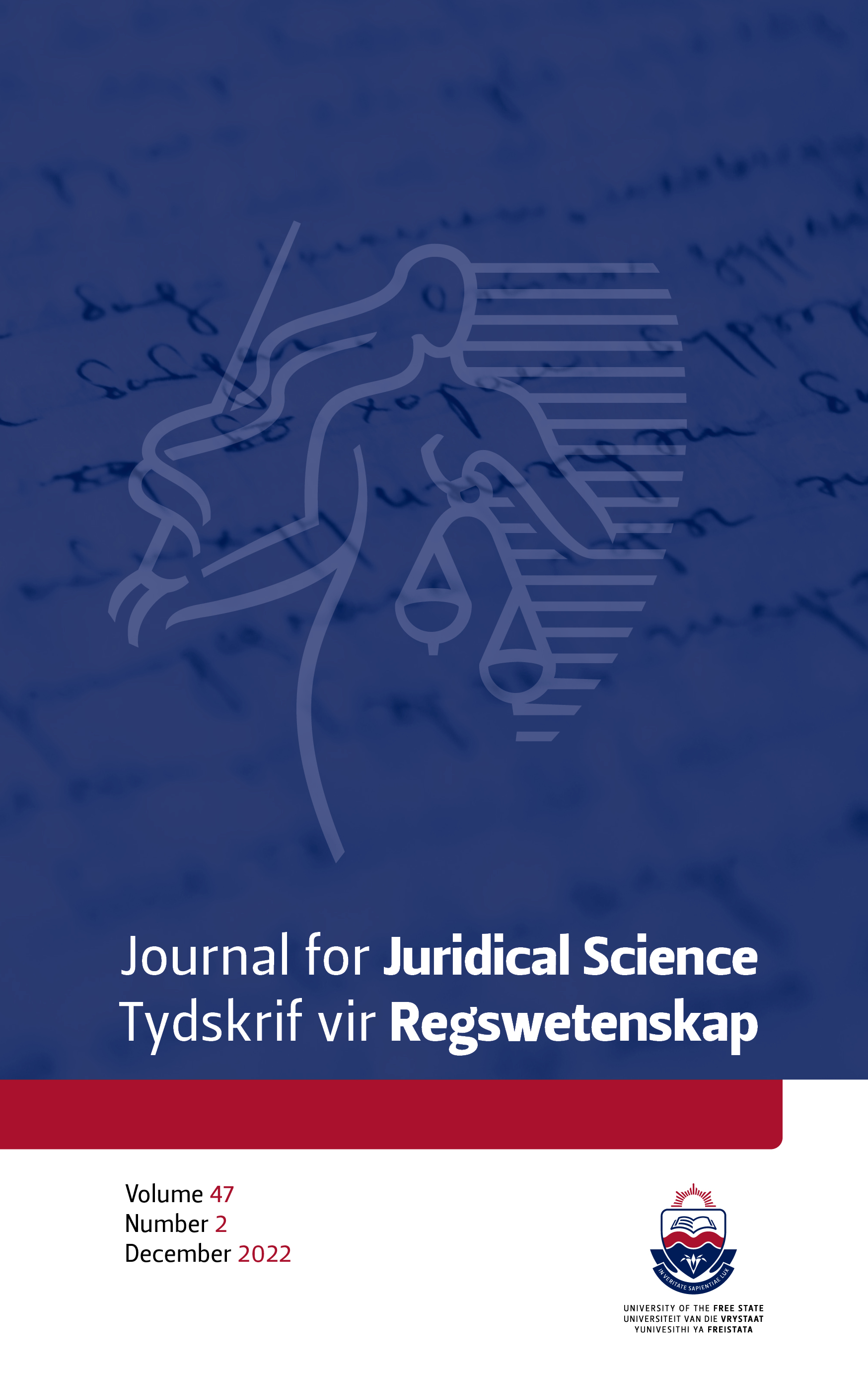Considering the boundaries of possessory protection in the context of incorporeals - should the mandament van spolie protect access to an email address?
Critical reflections on Blendrite (PTY) LTD and Another v Moonisami and Another 2021 5 SA 61 (SCA)
DOI:
https://doi.org/10.18820/24150517/JJS47.i2.2Abstract
The case under discussion considers whether the mandament van spolie (mandament) may be used to protect access to a director’s company email address. The Supreme Court of Appeal confirmed that the mandament only protects the quasi-possession of rights linked to tangible things, particularly land. Absent this link, the quasi-possession simply does not qualify for possessory protection. As the first respondent’s access to his email address was not linked to the use and enjoyment of a tangible thing, the appeal was upheld. The outcome of the judgment cannot be faulted, as it accords with previous case law on quasi-possession, as well as with the views of scholars. Nonetheless, it raises an interesting question, namely whether the thing-oriented nature of protection under the mandament is desirable. Reason being that the range and value of incorporeals unrelated to tangible things are increasing at an astonishing rate. This article analyses whether the mandament should perhaps be available to protect the quasi-possession of these interests from two perspectives, namely the nature and purpose of possessory protection and a systemic constitutional approach towards remedies. The first shows that the thing-oriented nature of possessory protection comes from Roman law and is thus unsurprising. Yet, Radin’s personhood theory draws this nature into question. According to her, property enables persons to attain human flourishing, and it thus enjoys protection in constitutional law. The fact that an email address, which is most probably constitutional property, promotes human flourishing suggests that access to this interest is worthy of protection. Whether the mandament is the appropriate remedy to offer such protection is then considered in terms of a systemic constitutional approach towards remedies. This approach, which flows from the single-system-of-law principle, indicates that the remedy should not be extended to the quasi-possession of incorporeals unrelated to tangibles if such quasi-possession enjoys protection under remedies that are analogous to the mandament. One such remedy seems to be sec. 163 of the Companies Act 71 of 2008, which was arguably available to the first respondent and could have restored access to his email address. Access to an email address might even enjoy protection by way of specific performance in contract law, especially when obtained by way of an urgent interdict. These reasons, which the Supreme Court of Appeal did not consider, support the outcome of the case and the decision is, therefore, welcomed.
Downloads
##submission.downloads##
Published
Issue
Section
License
Copyright (c) 2022 Author(s)

This work is licensed under a Creative Commons Attribution 4.0 International License.




